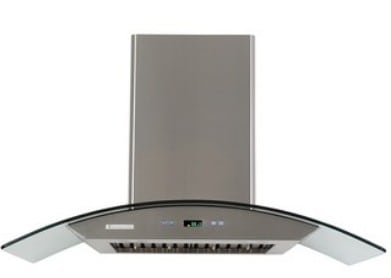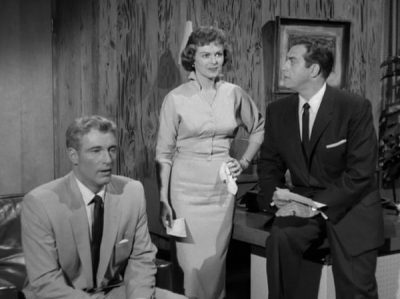
Can My Landlord Keep My Deposit Because He Wants To Replace The Range Hood?
My landlord is trying to hold all of my deposit and charge me even above the security deposit by replacing the range hood in the kitchen and cleaning the ceiling and walls in the kitchen due to excessive oil.
We’ve hired a professional cleaning company to clean the whole house, maybe these spots are not in very good condition even after cleaning. Should we pay for that?
We’ve been living there for more than 7 years.
He also charged me for painting of $1500 for the whole house because of the kid’s drawing on the wall on the first floor.
Should I pay for that? Or just a percentage of that since I’ve been living there for a long time?
BTW, I live in San Jose.
Whenever I write about security deposits, my comments can be applied to any tenant in California because state law governs the collection and return of security deposits. Almost all of my answers are based on my reading and interpretation of California Civil Code §1950.5, which applies to all California tenancies from Weed to Chula Vista, even San Jose.
San Francisco tenants enjoy an additional local right to collect interest on their security deposits, but they’re still governed by Civil Code §1950.5 for everything else.
The first thing you should do id re-read “Grand Theft Security Deposit.” Then take a at a recent column in which I addresses a common problem–the landlord uses the tenant’s money to remodel. Check out “Tenant Troubles: Can My Landlord Make Me Pay To Replace The Carpet?”
Civil Code §1950.5 provides that a landlord can deduct from a security deposit, costs associated with repairing damages that are over and above those associated with ordinary wear and tear. Unless you took a sledge hammer to the range hood, the landlord cannot blame you because the hood needs to be replaced. In fact, you can point out that any excess grease was caused by the defective hood if it wasn’t ventilating properly.
If some areas in the house just cannot be cleaned they also may simply be the result of ordinary wear and tear.
The kid’s drawing is another issue. Certainly the landlord can deduct any cost associated with repainting that wall, but I don’t believe he can justify painting the whole house.
The landlord is required by law to provide you with a list of deductions. If you feel they are unfair, write a letter to the landlord and demand that he return the portion to which you are entitled. Give him five days to return the money and tell him if he does not do so you will sue him for your actual damages plus twice the amount fo the security deposit for withholding your money in bad faith.
When the landlord does not respond, file a small claims lawsuit against him. Pick up a copy of Everybody’s Guide to Small Claims Court in California, by Ralph Warner for Nolo Press. This book will guide you, step by step, through the process.

 This is a dance you probably shouldn't try to do by yourself. Almost all tenants need a lawyer to lead. You likely have a better chance buying a house than you do prevailing in an unlawful detainer by defending yourself.
This is a dance you probably shouldn't try to do by yourself. Almost all tenants need a lawyer to lead. You likely have a better chance buying a house than you do prevailing in an unlawful detainer by defending yourself.
We as homeowners take care of the interior and exterior of our homes. Yes, some of the appliances continue to function long after the expected lifetime. But most tenants feel that the apartment they live in is there to be used up. They don’t rush to minimize damage; instead they think “wear and tear” and calculate their departure date by when it will no longer be livable because of what they are doing to it. They should not be surprised when their security deposit is used to mitigate these expenses that will otherwise build up to where all of the other tenants get the dubious opportunity to pay their fair share… or would you rather see the owners sell the building and walk away from it, leaving the new owners to calculate how to raise your rents… with little knowledge or concern about who you are. Sometimes new owners empty and renovate the entire building. Bottom line: let the owners run their business the way it has to be done–including shutting down an elevator for six weeks and then splitting the cost among 50 families who live there.., over a period of five years, not all at once. They can also pay the interest on the construction loan to get this done! Anyone who really thinks that the money is coming out of the owners’ pockets is… well… not a business owner!
And yet there are things that must be charged against their security deposit, such as the cost of kitchen cabinet doors missing because the tenant admittedly threw them out; also dragging their own broken-down refrigerator down a freshly painted concrete walkway to get it into the elevator, and in the process tearing up the elevator’s vinyl floor and a couple of doors on the way. These are extra things that the whole building will have to pay for, if it is not paid for by the departing tenants. The security deposits protect the other tenants left behind. Too many times, tenants think the owners should magically be able to pay for everything including repainting the walkway and replacing the elevator flooring, buying new cabinet doors, and excess utility usage. No, the truth is that it is like every other business–where the cost of these things has to be passed on to the consumers–other tenants–if we don’t hold the line and get the money from the departing tenants who caused this extra expense!
On range hoods: the first question the tenant should ask is “how old is the range hood?” They don’t last forever, and it’s possible that it’s just no longer possible to clean it. In our rental the range hood and the oven are both original (45 years old, more or less), and probably should have been replaced about, oh, 25 years ago.
And yes, it always amazes me that landlords talk about the damage tenants do when tenants have managed not to damage appliances that have been in use since the Johnson Administration.